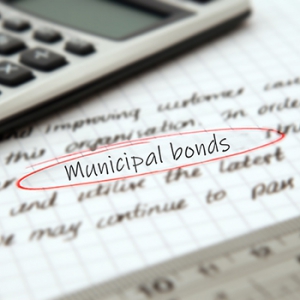 If you’ve been investing money for any length of time, you might be familiar with municipal bonds. You may also be aware that if you invest in that type of bond, the interest you receive is – generally — federal income tax free. It would seem appealing to most investors to receive interest that is free from taxation — but should municipal bonds hold a place in your portfolio?
If you’ve been investing money for any length of time, you might be familiar with municipal bonds. You may also be aware that if you invest in that type of bond, the interest you receive is – generally — federal income tax free. It would seem appealing to most investors to receive interest that is free from taxation — but should municipal bonds hold a place in your portfolio?
Your tax bracket can help you decide
This largely depends on the income tax bracket in which you fall. Let’s assume you’re in the 24% bracket and you’re considering investing in a municipal bond, which is paying 5% interest per year. Also available to purchase, however, is another bond — let’s say it’s a traditional corporate bond, which pays 6.75% per year of taxable interest.
 Which bond should you buy?
Which bond should you buy?
The answer might surprise you. For this investor, the answer is: the taxable bond paying 6.75%. With this bond, they will receive the 6.75% interest, pay tax on that interest of 24%, and net themselves 5.13% after taxes. This is higher than the 5% interest the municipal bond is offering!
Another municipal bond investment example
Here’s a different example using an investor in the 37% income tax bracket, and the same two bonds as the previous example. In this case, the better choice is the tax-free municipal bond. Why? If they chose the bond paying 6.75% then pay income tax of 37% on the interest they receive, they’d net 4.25% interest after tax. The tax-free interest of 5% is a better value in this case.
 Tax-free isn’t always the best option
Tax-free isn’t always the best option
The concept here: don’t assume the tax-free interest of municipal bonds is necessarily the best option in every case. The basic rule of thumb is that the higher your income tax bracket, the more appealing municipal bonds are — and vice versa. Looking at your own tax scenario and comparing what taxable and tax-free bonds are available can help you make the most beneficial choice.
May 2019
Content in this material is for general information only and not intended to provide specific advice or recommendations for any individual. All performance referenced is historical and is no guarantee of future results.
Municipal bonds are subject to availability and change in price. They are subject to market and interest rate risk if sold prior to maturity. Bond values will decline as interest rates rise. Interest income may be subject to the alternative minimum tax. Municipal bonds are federally tax-free but other state and local taxes may apply. If sold prior to maturity, capital gains tax could apply.
